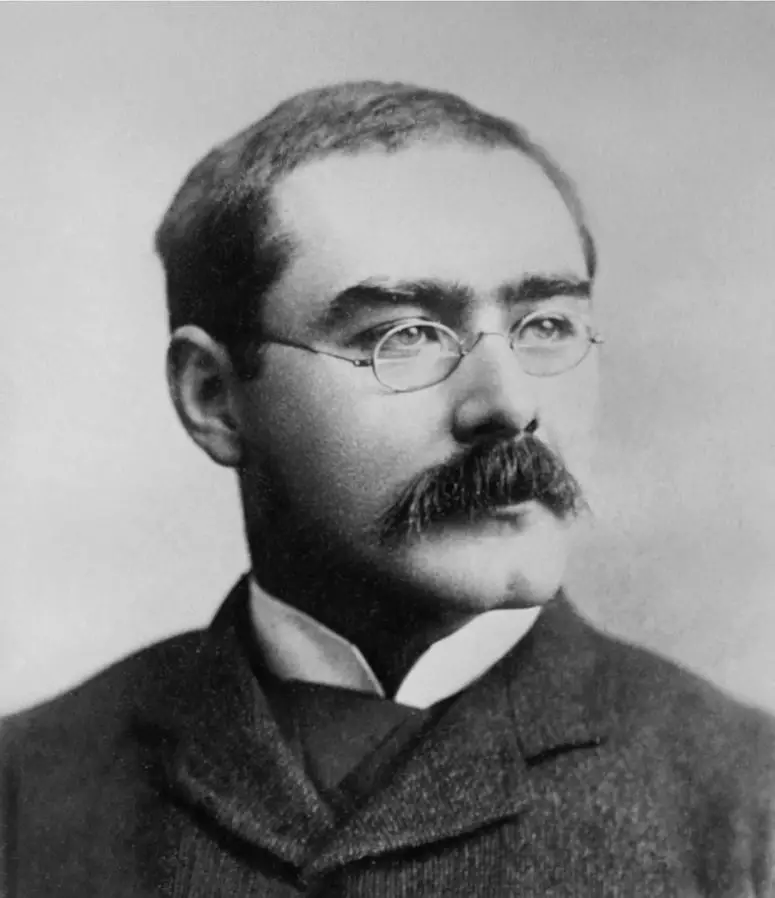Table of Contents
Listening activity – If by Rudyard Kipling

Read and listen to the poem “If by Rudyard Kipling.”
Who is Rudyard Kipling?
Rudyard Kipling (December 30, 1865 – January 18, 1936) was a prolific and esteemed writer in England during the late 19th and early 20th centuries, known for his mastery in both prose and verse. Renowned American author Henry James once remarked that Kipling struck him as “the most complete man of genius” he had ever encountered. In 1907, Kipling made history by becoming the first English-language writer to be awarded the Nobel Prize in Literature, solidifying his enduring legacy in the literary world.
If by Rudyard Kipling
Listen to the poem
“If” by Rudyard Kipling
If you can keep your head when all about you
Are losing theirs and blaming it on you;
If you can trust yourself when all men doubt you,
But make allowance for their doubting too;
If you can wait and not be tired by waiting,
Or, being lied about, don’t deal in lies,
Or, being hated, don’t give way to hating,
And yet don’t look too good, nor talk too wise;
If you can dream – and not make dreams your master;
If you can think – and not make thoughts your aim;
If you can meet with triumph and disaster
And treat those two imposters just the same;
If you can bear to hear the truth you’ve spoken
Twisted by knaves to make a trap for fools,
Or watch the things you gave your life to broken,
And stoop and build “em up with wornout tools;
If you can make one heap of all your winnings
And risk it on one turn of pitch-and-toss,
And lose, and start again at your beginnings
And never breath a word about your loss;
If you can force your heart and nerve and sinew
To serve your turn long after they are gone,
And so hold on when there is nothing in you
Except the Will which says to them: “Hold on”;
If you can talk with crowds and keep your virtue,
Or walk with kings – nor lose the common touch;
If neither foes nor loving friends can hurt you;
If all men count with you, but none too much;
If you can fill the unforgiving minute
With sixty seconds” worth of distance run –
Yours is the Earth and everything that’s in it,
And – which is more – you’ll be a Man my son!
If by Rudyard Kipling Analysis
Rudyard Kipling’s poem “If” is a timeless piece of literature that offers practical advice and wisdom on how to navigate the challenges of life. Written in the form of paternal advice to the poet’s son, the poem underscores the virtues of self-discipline, resilience, and integrity.
The poem is structured in a series of conditional statements, each starting with the word “if,” which cumulatively build up to the concluding reward: “Yours is the Earth and everything that’s in it, / And – which is more – you’ll be a Man, my son!” This structure emphasizes the importance of these virtues in achieving personal success and maturity.
Key Themes:
- Self-Control and Patience: The first stanza advises maintaining composure and patience, even when surrounded by chaos and doubt.
- Honesty and Integrity: It emphasizes the importance of being truthful and avoiding hatred, regardless of how others may behave.
- Balance between Dreams and Reality: The second stanza highlights the importance of dreaming and thinking without being consumed by them.
- Resilience and Determination: The third stanza speaks to the strength required to start over after setbacks and to persevere through adversity.
- Humility and Equality: The final stanza promotes humility, the ability to interact with all social classes, and valuing every minute.
Kipling’s use of simple yet profound language makes the poem accessible while delivering deep moral lessons. “If” remains a powerful guide for personal development, encouraging readers to cultivate strength of character and live with integrity.
Test Yourself: “If by Rudyard Kipling”
Decide whether these statements about “If by Rudyard Kipling” are true or false:
- The poem “If” is written in the form of advice from a father to his son.
- Kipling advises that it is acceptable to deal in lies if others lie about you.
- The poem suggests that making dreams your master is a virtue.
- According to the poem, triumph and disaster should be treated as two impostors.
- The poem emphasizes the importance of avoiding the company of common people.
- The line “If you can fill the unforgiving minute with sixty seconds’ worth of distance run” implies making the most of every moment.
- The ultimate reward for following the advice in the poem is becoming wealthy.
Related Pages:


